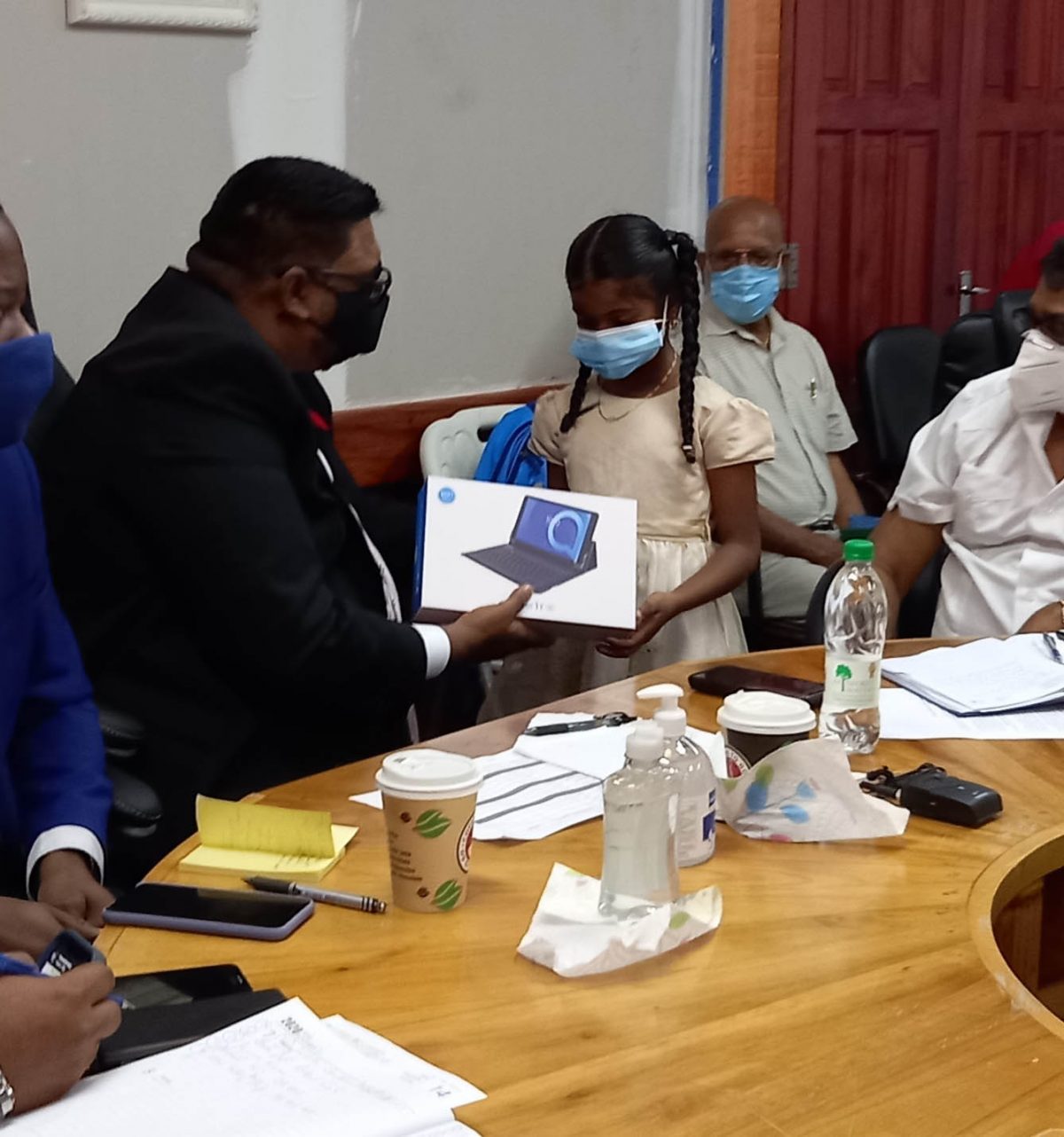President Irfaan Ali yesterday announced plans to establish teams in every region to coordinate the response of government agencies to solve issues faced by citizens on the ground.
Ali made the announcement during an outreach in Region Six, where he told reporters that the rapid response teams would provide “an opportunity where we are breaking down all the barriers between the various agencies, bringing them together at the regional level so that we can have timely resolutions.”
Also present for yesterday’s outreach, which was conducted at the Regional Democratic Council (RDC) office in New Amsterdam, were regional officials, representatives from the Office of the President, the Ministry of Housing and Water, the Central Housing and Planning Authority, the Ministry of Foreign Affairs, the Guyana Power and Light (GPL), the National Insurance Scheme (NIS), the National Drainage and Irriga-tion Authority (NDIA), the Lands and Surveys Commission, and the Ministry of Health, among others.
The officials gathered in the RDC office’s boardroom, where residents were allowed one at a time to enter and air their concerns and issues. By the end, an average of 150 persons, from the Central Corentyne, Upper Corentyne, Berbice River, Orealla, East Canje Berbice and New Amsterdam areas, were given an opportunity to meet with the president and other officials.
A majority of the persons reported issues with their pensions, lands, and utilities.
Ali told the General Manager for NIS, Holly Greaves that her entity had two weeks to deal with the issues raised. One man said he had 769 contributions but was getting the royal runaround to receive his money although he had a printout from NIS showing his total contributions. Several widowers also complained about the runaround they were getting in regard to receiving their benefits although they had submitted the necessary documents for a few years now.
A large number of persons who were present complained of the waiting process for a house lot although they had received acknowledgment letters. Most said they had applied since 2015, while others applied last year and one person applied in 2013. The president informed them that the agency is presently dealing with 2013 applicants as it seek to clear its backlog. However, he added that while he could not promise them anything definitively, his government is working on a housing project in the Williamsburgh area for single parents and young professionals and he said they could be considered.
Meanwhile, a Corentyne resident told the president that he complained to a regional engineer about the need to clear a canal in his area about three weeks ago. However, the engineer had not even visited the location up to yesterday. The president summoned the regional engineer and told him to head to the area imme-diately and commence work. Additionally, another resident complained that there was a pile of dirt in his area which he has been trying to get removed for a while. Ali instructed the Regional Chairman, David Armogan, to make contact with the overseer in the area and ensure that the dirt was removed immediately.
A resident of East Canje Berbice complained that the Neighbourhood Democratic Council (NDC) in his neighbourhood has a quantity of stones in the compound “and grass growing on them and we could full them holes on the street with them”. The president instructed that all of the stones be dispatched to full potholes in the area.
Several major business persons also attended the outreach and spoke of their issues. Deonarine Arjune, of Arjune Chicken business, told the president that he had a pen at Fyrish Village, Corentyne, and is need of electricity. He said, that he already paid for a pole and other necessities to speed up the process but was still awaiting a connection.
The president then instructed the GPL official present to deal with the matter.
Contractors who raised issues about procurement were told by President Ali that he would not be intervening in any procurement process.
At the end of the outreach, Ali stressed that public service “has to be grounded to the communities and to the people. It can’t be an aloof approach, it can’t be management by AC offices. There has to be a serious connection to the ground.”
He said although many issues were raised concerning particular agencies, those persons responsible for them should gain strength from the engagement and look at it as an opportunity to see where there are weaknesses in the system and how they can be addressed. He then encouraged the persons from the various agencies to build “lateral relationships.”









